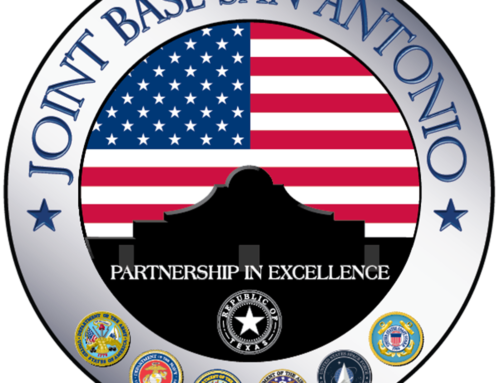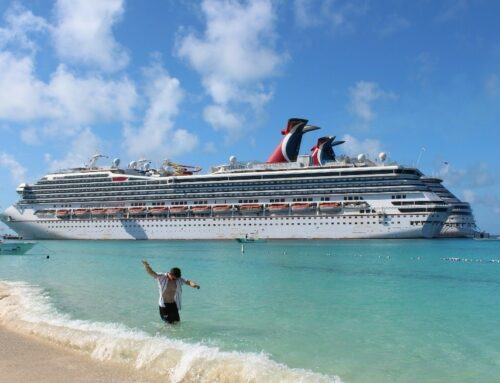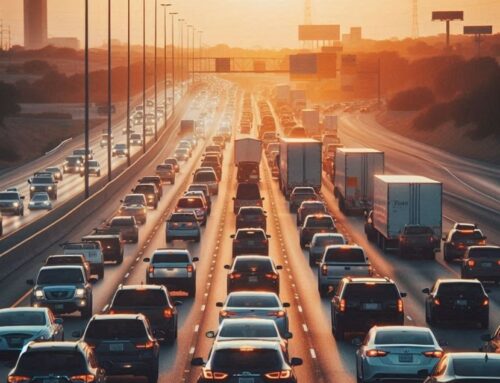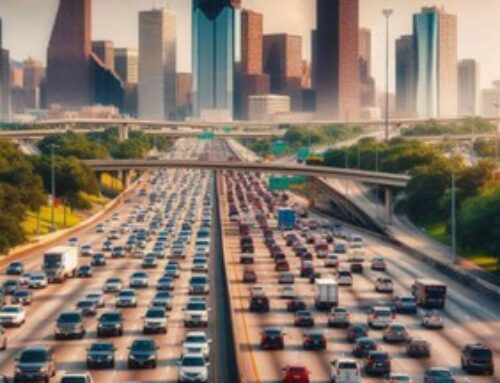Accountability Urgently Needed in the Decommissioning of Offshore Wells and Platforms
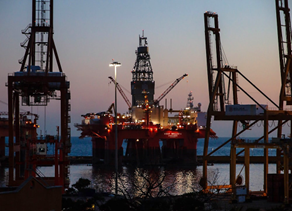 The offshore oil and gas industry has been a huge source of industrial growth since the 1940s, with over 55,000 wells and 7,000 platforms installed on the U.S. Outer Continental Shelf, most of them in the Gulf of Mexico. While this infrastructure fueled decades of economic success, it now represents a legacy of environmental neglect that could have profound consequences for future generations.
The offshore oil and gas industry has been a huge source of industrial growth since the 1940s, with over 55,000 wells and 7,000 platforms installed on the U.S. Outer Continental Shelf, most of them in the Gulf of Mexico. While this infrastructure fueled decades of economic success, it now represents a legacy of environmental neglect that could have profound consequences for future generations.
A recent report by the U.S. Government Accountability Office (GAO) has brought to light a critical issue: the U.S. Department of the Interior, specifically through its Bureau of Safety and Environmental Enforcement (BSEE) and Bureau of Ocean Energy Management (BOEM), is facing criticism for inadequately enforcing the decommissioning of aging offshore oil and gas wells and platforms. This failure in oversight represents a significant threat to both the environment and the financial stability of the U.S. taxpayer.
According to the GAO’s findings, over 40% of wells and 50% of platforms on Gulf leases that expired between 2010 and 2022 are missing the BSEE’s 1-year deadline for decommissioning. As of June 2023, more than 75% of end-of-lease and idle infrastructure in the Gulf was overdue for decommissioning under BSEE deadlines, which translates to over 2,700 wells and 500 platforms.
This issue is not just matter of missed deadlines; delayed decommissioning poses significant environmental, safety, and financial risks. The Gulf of Mexico is full of aging structures which are increasingly vulnerable to damage and deterioration from storms and corrosion. Over time, this weakens and can even topple platforms, making decommissioning more expensive and dangerous. Additionally, in the Gulf of Mexico alone, there are an estimated 14,000 non-producing offshore and coastal wells left uncapped or “unplugged”, according to a study conducted by researchers at the University of California at Davis and Louisiana State University (LSU). Without the capping and sealing, these wells continue to create environmental hazards, such as chemical and oil spills, methane emissions, and air pollution.
The financial implications are daunting—BOEM holds about $3.5 billion in supplemental bonds to cover an estimated total decommissioning and well-capping cost ranging between $40 billion and $70 billion. This discrepancy leaves the federal government, along with U.S. taxpayers, exposed to billions in potential liabilities. The GAO’s report further suggests that the Interior Department could significantly mitigate liability by ensuring that BSEE and BOEM prioritize their planned actions, particularly with structures closer to shore.
The GAO’s report presents four recommendations for strengthening BSEE and BOEM’s oversight and enforcement, offers a blueprint for change:
 Improve oversight and enforcement of decommissioning deadlines by evaluating and enhancing the use of enforcement tools and considering regulatory/policy changes in collaboration with BOEM.
Improve oversight and enforcement of decommissioning deadlines by evaluating and enhancing the use of enforcement tools and considering regulatory/policy changes in collaboration with BOEM.
- Finalize and implement updates to decommissioning regulations and guidance, including clarifying criteria and deadlines for decommissioning idle and end-of-lease infrastructure to address any other limitations.
- Finalize and enact updates to financial assurance regulations and procedures to minimize financial risks, including mandating increased supplemental bonding and rectifying other vulnerabilities.
- Complete planned actions to assess and revise qualification procedures to address decommissioning capacity and compliance history in consultation with BSEE.
As the U.S. navigates the delicate balance between utilizing our ocean’s resources and preserving the marine and coastal environment, the GAO’s report serves to remind us about the importance of keeping the maritime industry regulated and safe.
As maritime personal injury attorneys, we care for and support this cause as well.
Here at the Herd Law Firm , we are proud to fight for maritime workers and passengers in all types of personal injury claims. We never waver in our commitment to help these maritime workers and their families when they are killed or injured.
February 22, 2024







